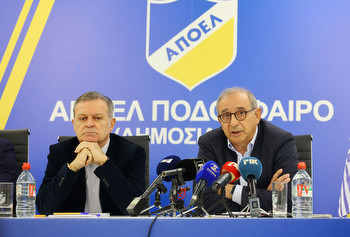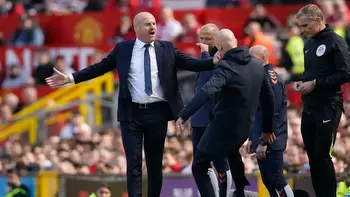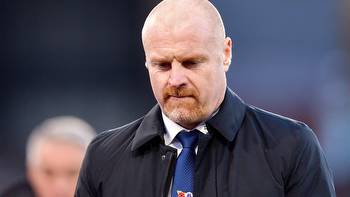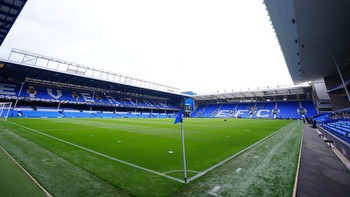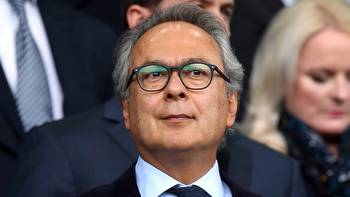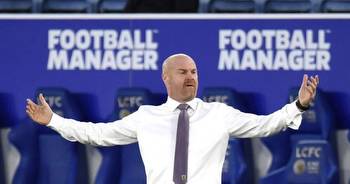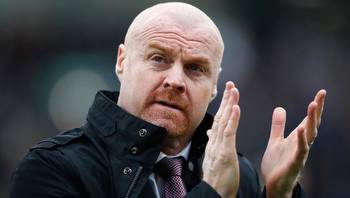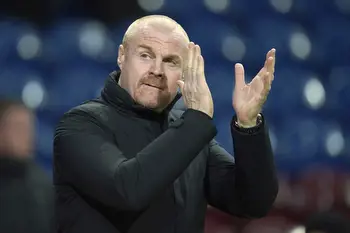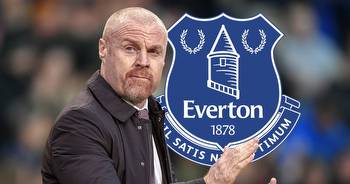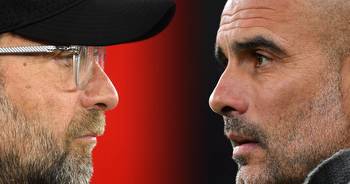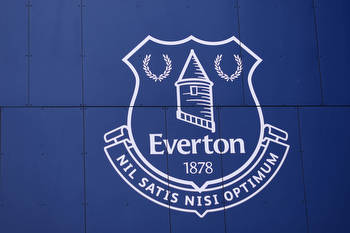Everton’s proposed takeover by 777 Partners underlines the depth of their desperation
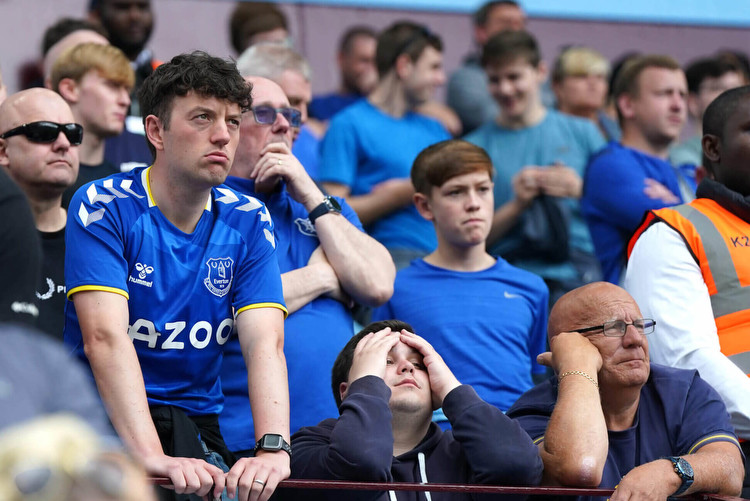
Slowly but surely, the depth of Everton’s desperation becomes clear. Not just mired in the relegation zone once more. Not just facing the threat of Premier League sanctions. Not just struggling to pay the bills every month. But already deeply indebted to the investor Farhad Moshiri has anointed as the club’s next saviour.
On Friday morning, Moshiri announced he had agreed a deal to sell his 94.1 per cent stake in Everton to 777 Partners, a Miami-based investment firm that has been embroiled in various controversies in its eight-year history.
That deal still requires regulatory approval but, on Monday evening, The Athletic revealed that 777 has already lent a “sizeable” sum, understood to be tens of millions of pounds, just to help the club stay afloat by covering an immediate cashflow deficit and the latest construction bill for their new stadium at Bramley-Moore Dock.
It is desperate, desperate stuff — a world away from the optimism that briefly swept Goodison Park when Moshiri rode into town in 2016, lauded by chairman and previous owner Bill Kenwright as “the perfect partner to take the club forward” and by Roberto Martinez, their manager at the time, as “a gentleman with incredible values” who “knows what it takes” to build a team into Champions League contention and “take the club to the next level”. Hmmm. The next level down, perhaps.
The Moshiri years have been disastrous. That much was clear long before the grim relegation battles of the past two seasons, the appalling financial results that have brought severe restraints on transfer activity (as well as the forthcoming arbitration case over alleged breaches of the Premier League’s profit and sustainability rules), and the frantic cancellation of a series of sponsorship deals after Moshiri’s business partner, Alisher Usmanov, was sanctioned by the UK government in response to the Russian invasion of Ukraine.
Seven years on from the Moshiri takeover, the club’s need for new investment and new leadership is overwhelming. Again, the word that comes to mind is desperate. Desperation in 2016 led them to Moshiri. Seven years of mismanagement has led them to an investment firm whose track record, in football and elsewhere, has left fans worrying whether Everton might be jumping out of the frying pan and into the fire.
Moshiri has described 777 as “the best partners to take our great club forward” and it is all the more unnerving to look back and see that this very phrase, almost word for word, was used about his takeover back in 2016.
Whatever his intentions were, his judgment around Everton has been so poor so often. How can the club’s supporters, with so many alarm bells ringing, trust his judgment now when it is so severely compromised by the urgency of the situation and the glaring lack of alternatives?
Everton’s statement on Friday morning made clear that the proposed takeover was subject to regulatory approval from the Premier League, the FA and the Financial Conduct Authority.
That is not the formality it might have been in the past. For one thing, the Premier League owners’ and directors’ test was tightened earlier this year. Even if 777 co-founder Josh Wander’s 20-year-old conviction for drug trafficking is not an issue, the authorities will want reassurances over the various court cases the company has faced in the U.S., where it has been accused of fraud and racketeering. The various claims have been denied by 777, who are contesting them in court.
Beyond that, how much faith can Everton’s fans be expected to put in Moshiri’s endorsement of 777? “An experienced and well-connected investor in football clubs,” he said — which is certainly a good deal more positive than some of the feedback we have heard from elsewhere.
“Is there anyone in the world that’s been more serious about buying football clubs in history than Josh Wander?”
It’s an interesting question. And it was probably rhetorical given that the person asking it, in a recent interview with the Financial Times, was none other than… Josh Wander.
In recent years, 777 Partners, the investment company Wander co-founded with with Steven Pasko, has bought controlling stakes in Genoa, Standard Liege, Hertha Berlin, Red Star FC and Vasco da Gama as well as minority stakes in Sevilla and Melbourne Victory. Everton would be their most high-profile acquisition yet.
Even by the standards of the growing “multi-club” phenomenon, in which the game’s gatekeepers appear to have resigned themselves to seeing one historic institution after another being added to the same investment portfolio, that certainly is — as Wander suggests — a serious commitment to buying football clubs.
But it’s not really meant to be about how many you own, is it? To say no one has been more serious about buying football clubs than Wander is a little like saying no one has been more serious than Henry VIII about getting married. Or Zsa Zsa Gabor. More contemporary references are available.
To call 777 “experienced”, in terms of football investment, is debatable in the extreme. This time two years ago, their football portfolio amounted to a 7.5 per cent stake in Sevilla.
Then, in swift succession, came a 99.99 per cent purchase of Genoa (since relegated from Itay’s Serie A, then promoted again, currently 13th), a 70 per cent acquisition of Vasco da Gama (on course to be relegated from the Campeonato Brasileiro Serie A), total buy-outs of Standard Liege (one win from their first seven games in this season’s Belgian Pro League) and the Parisian club Red Star (top of the French third tier), a 70 per cent stake in Melbourne Victory (11th out of 12 in the A-League last season) and a 78.8 per cent stake in Hertha Berlin (already on course for relegation when the takeover happened last March, currently 15th out of 18 in the 2. Bundesliga after a poor start to their first full season under new ownership).
They have experienced plenty in those two years: relegations with Genoa and Hertha Berlin (with perhaps another one or two on the way this season), a promotion with Genoa and an awful lot of adversity and criticism. But success? Not a sniff of it. The implementation of the type of football vision and strategy several of these clubs badly needed? Again, despite the reference in Everton’s statement to 777’s success in creating “significant synergies through access to world-class data and analytics, player development and global commercial opportunities”, there is not much sign of it. To date, the one recurring theme across the 777 football network has been supporter unrest.
When pressed by the Financial Times regarding his strategy for football, Wander referred to the need to ride “a new wave of commercialisation”. He didn’t mention Everton specifically when he said 777 had invested in clubs who had “done a horrible job of commercialising the product”, but it is a criticism that could certainly be levelled at a club which, having been among the architects of the Premier League breakaway in the early 1990s, has been so slow to adapt to the changing the times.
There is no doubt commercial growth would be a priority for any investor looking to improve Everton’s fortunes, but the club is in desperate need of serious investment: from clearing the debts to getting the stadium built, from improving the squad to bringing in new ideas, new expertise and new energy in all areas. The attractions of Everton are obvious because, on the pitch and off it, the club is so far short of fulfilling its potential. But this is not a quick fix, let alone a cheap one.
The same assessment has been offered — in even bleaker, even starker terms — by The Esk, an Everton supporter whose blogs and podcast have been an invaluable resource for a fanbase desperate for more clarity and transparency over the club’s financial and ownership status. A long-time critic of both the Moshiri regime and the Kenwright regime that came before, he has spent years calling for change, but that desire for change does not extend to confidence in 777.
“There is nothing to suggest that 777 Partners are the solution to Everton’s ownership or financial difficulties,” The Esk wrote. “I don’t believe they will overcome the regulatory and other hurdles to acquire the club. We face the most uncertain of futures. We shouldn’t be wasting time thinking 777 Partners provide any of the required solutions — nor even that they will achieve their objective of ownership.”
It is a damning appraisal — and one that both Moshiri and 777 reject.
Wander made many of the right noises in the club statement last Friday: “Truly humbled by the opportunity to become part of the Everton family as custodians of the club,” “Consider it a privilege to be able to build on its proud heritage and values”, “Work with fans and stakeholders”, “Deliver results for future generations of Everton supporters,” “Partnering with the local community over the long term”, “Allowing thousands more Evertonians to attend our home matches and contribute to the economic and cultural regeneration of Merseyside”. Textbook stuff, really.
So many fanbases have heard all this before, though. Everton fans certainly have. The optimism that greeted the Moshiri takeover — giddy among some, cautious among others — has long since faded. It has given way to the desperate hope that somebody, almost anybody, can avert the threat of relegation, oblivion or whatever else might follow if nothing is done.
Even now, there is a concern that there might be something worse than the status quo — that even if 777 were to demonstrate the best will in the world, they might, like Moshiri, fall short when it comes to clear-headedness, leadership and expertise.
This is a club that needs salvation, but in a situation as challenging as this, potential saviours tend to be in pretty short supply.

